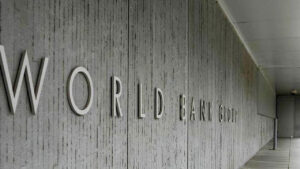Civil society acts as government procurement ‘watchdog’ — World Bank
THE PHILIPPINE GOVERNMENT must increase the participation of civil society organizations (CSOs) in monitoring its procurement process to help prevent misuse of state funds, the World Bank said in a blog. “CSOs often act as watchdogs, ensuring that the bidding process is transparent. Their involvement can help to hold government agencies and contractors accountable, reducing […]

THE PHILIPPINE GOVERNMENT must increase the participation of civil society organizations (CSOs) in monitoring its procurement process to help prevent misuse of state funds, the World Bank said in a blog.
“CSOs often act as watchdogs, ensuring that the bidding process is transparent. Their involvement can help to hold government agencies and contractors accountable, reducing the risk of fraud and mismanagement of public funds,” World Bank Senior Procurement Specialist Dominic R. Aumentado and Government Procurement Policy Board (GPPB) Executive Director Rowena Candice M. Ruiz said in the blog.
Monitoring procurement activities can help avoid fraud and misuse of funds, leading to cost savings, the analysts said.
Republic Act (RA) No. 12009, the New Government Procurement Act, allows at least two observers to sit in procurement proceedings — one representative each from a duly recognized private group and a CSO. This was mandated to ensure transparency in the state’s procurement process.
The new law updates RA 9814, the Government Procurement Reform Act of 2003, to help modernize the country’s procurement process and align it with global standards.
The Philippines is also expected to update its Procurement Observers’ Guide under the old procurement law with the emergence of digitalization and recent policy changes.
The guide details the principles, standards, and procedures for monitoring procurement, which would help CSOs with their monitoring.
The GPPB, as supported by the World Bank, launched a Procurement Observers’ Portal. Under which, CSO observers can access key documents, such as bids, budgets, technical specifications, and supplier profiles.
Citing the timeliness of the portal, the Washington-based multilateral lender estimates public spending to reach $140 billion by 2028.
“With this increase in spending, the role of CSOs in overseeing procurement becomes increasingly vital in ensuring the integrity and transparency of government decisions involving taxpayers’ money, loans from multilateral and bilateral agencies, and borrowing from private financing,” it said.
The WB cited the need to improve digital tools to expand CSOs role in identifying “red flags” in procurement to contract implementation. — Beatriz Marie D. Cruz
















